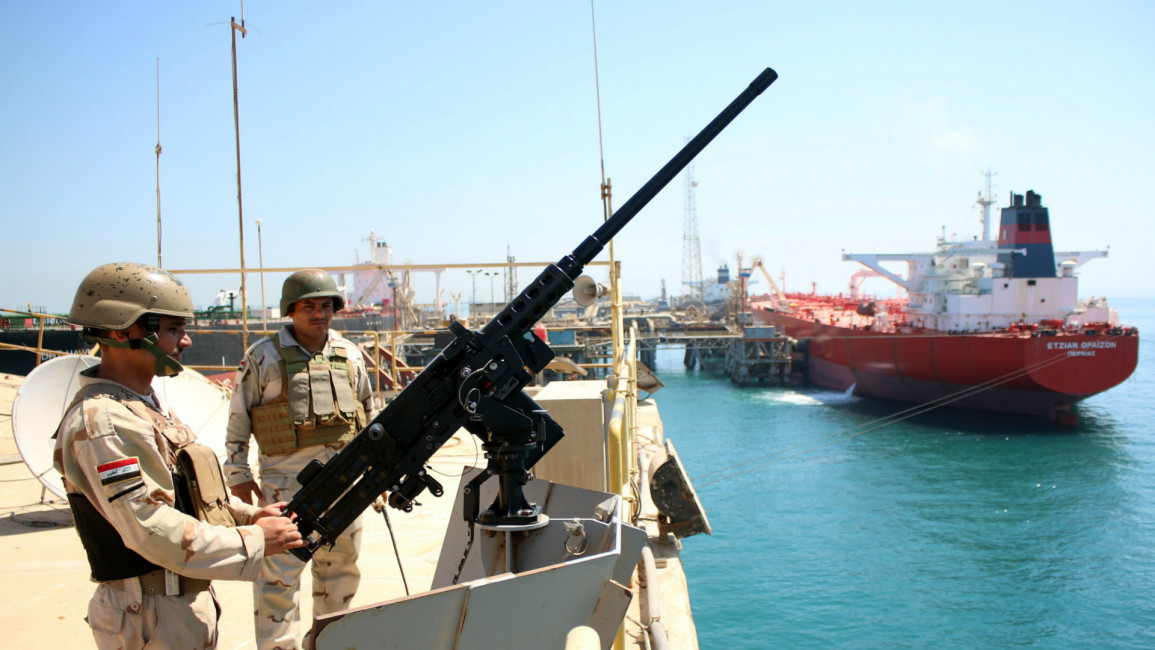Iraq seeks Kuwait reparations delay as budget crisis looms
Iraq is pushing for a deferral on its final $4.6bn reparation payment for its 1990-91 invasion of Kuwait as it grapples with a huge hole in its domestic finances.
Iraq's finance minister, Hoshiyar Zebari, told the Reuters news agency that his government was in discussion with Kuwait to postponement the payment "for at least a year".
Baghdad has already paid more than a million claimants and settled nearly all of its $52.4 billion reparations bill. However, a security crisis and falling oil prices have undermined the latest national budget.
|
|
|
This move will not be welcomed warmly in Kuwait and it is not a given that they will agree |
Iraq enjoyed a surplus of about $2.5bn last year but this year spending has outstripped revenue by more than $10bn.
Its outstanding payment relates to the 700 Kuwaiti oil wells set on fire by Iraqi troops retreating from the US advance in January 1991. Some of them burned for 10 months.
"Even before oil prices started to fall in the middle of the year, Baghdad was facing a fiscal crunch due to the need to allocate additional funds to the fight against the Islamic State group and the disruption to local government that the IS surge created," said Bill Faron Price, the chief executive of Petroleum Policy Intelligence.
Cutting costs
Global oil prices have almost halved since the middle of the year and oil exports account for almost 90 percent of government income.
According the International Monetary Fund, the Iraqi economy is set to shrink for the first time since the 2003 US-led invasion and international reserves have fallen by about $10bn this year.
A proposed budget for 2015 was rejected a fortnight ago by the Iraqi parliament after further falls in oil prices. More than $10bn of cuts have been proposed in a new draft, which the government hopes to pass on Sunday.
The fall in revenues has coincided with a surge in expenses as the government combats the Islamic State group. Money is being moved from areas such as social services and infrastructure development to pay for war costs.
Even with the extra $10bn in cuts there is still a projected deficit of about $30bn.
The postponement of the reparations payments would give Baghdad almost $5bn extra, for the coming year at least.
The United Nations Compensation Commission (UNCC), is expected to discuss the Iraqi request next week.
An unwelcome request
Richard Mallinson, the chief policy analyst for Energy Aspects, a London-based consultancy, said the request must come with guarantees. "This move will not be welcomed warmly in Kuwait and it is not a given that they will agree," he said. "They will want to know exactly when and how Iraq will catch up with the payments."
|
|
|
If Saudi Arabia continues to refuse to budge the prices will stay low and may even fall further |
Neither the Kuwaiti embassy in London nor the authorities in Kuwait City were available for comment before publishing.
Iraq's fiscal woes are unlikely to be resolved soon. At a recent OPEC meeting many member states, included Iraq, were pushing for a cut in output to push up prices and bolster state coffers.
However, no cut in output was agreed.
Amal Ahmad, an oil industry analyst at IBISWorld, said: "Saudi Arabia remains the dominant force in OPEC and in many ways it is acting alone in refusing to reduce production. This is having a big affect on Iraq."
Numerous motives have been suggested for the decision to maintain current production levels, including to undercut surging US shale production and regional rivals such as Iran and Russia.
"Saudi Arabia is able to withstand low prices for much longer than many other producers. If it continues to refuse to budge the prices will stay low and may even fall further," said Ahmad.
This week Iraq announced it would further discount its January sales of crude oil to Asia, taking it to its lowest in 11 years - a further indication of the continuing downward pressure on prices.



![Squad incumbent Summer Lee has won her district's Democratic primary. [Brooke Anderson/The New Arab]](/sites/default/files/styles/image_212x120/public/2024-04/413898031_1041031157158522_8195934720767720634_n%20%283%29.jpg?h=ff8c3fa3&itok=bcwEKcag)